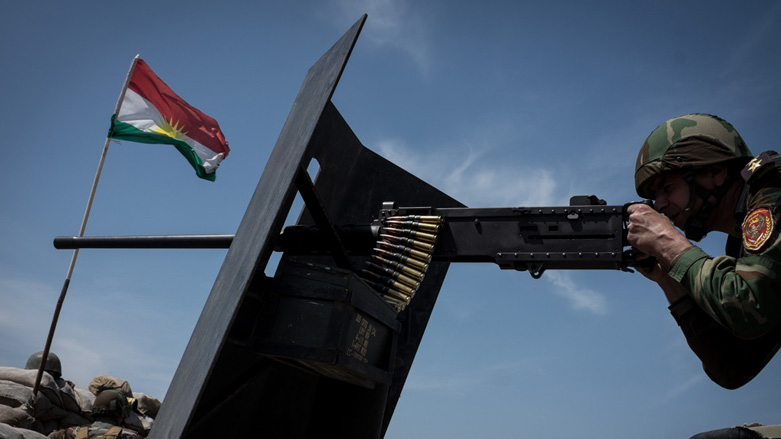KRG attends conference of Global Coalition against Islamic State

WASHINGTON DC, United States (Kurdistan24) – The Kurdistan Regional Government (KRG) will attend this week’s conference in Washington DC of the Global Coalition to Defeat the Islamic State (IS).
The State Department is hosting three days of meetings, which begin Tuesday and run through Thursday.
As recently as last week, the KRG’s participation had been uncertain. On Thursday, State Department Spokesperson, Heather Nauert, when asked at a regularly scheduled press briefing, if the KRG would be represented, replied, “I don’t know.”
However, Kurdistan24 has learned that the KRG will, indeed, be in attendance, when the event begins in a few hours’ time.
The KRG Representative to the US, Bayan Sami Abdul Rahman, will participate in the meetings as a member of the Iraqi delegation.
This is the second time that the KRG is represented in these meetings.
In March, the Coalition met in Washington at the Foreign Ministers level (this conference is at the level of political directors.)
Dr. Fuad Hussein, Chief of Staff to KRG President Massoud Barzani, attended the March conference—and Secretary of State Rex Tillerson noted Hussein’s presence in his opening remarks.
An informed source recently recounted the history of KRG involvement in these meetings. The US-led war against IS began in 2014. In 2015, the KRG was not invited to meetings of the Global Coalition.
In July 2016, Washington hosted both a Pledging Conference and a meeting of Defense and Foreign Ministers. As the date for those events approached, it seemed that, once again, the KRG would be excluded, and that became controversial.
The Kurdistan Region was playing a major role in the fight against IS. At that point, the Peshmerga had suffered over 1,500 dead, and the Kurdistan Region was hosting some 1.8 million refugees and internally displaced persons.
What legitimate reason could there be for denying the KRG a presence at such a conference?
As Masrour Barzani, Chancellor of the Kurdistan Region Security Council, wrote on Twitter, “It’s a travesty for US-led Global Coalition to exclude Kurds from the meeting in Washington DC, given our leading role in war on ISIS.”
The US had left the issue for Iraq to decide. At the last minute, Baghdad opted to include a KRG official in its delegation. However, the decision came too late for Erbil to send a senior figure, so Abdul Rahman attended the ministerial-level conference—but only as an observer.
At the Global Coalition conference in March, when the KRG finally did participate, the other delegates actually found that helpful! Fuad Hussein was able to answer questions that no one else could.
This week’s meetings are hosted by Special Presidential Envoy, Brett McGurk. On Tuesday, four Working Groups—Counter Finance, Foreign Terrorist Fighters, Stabilization Support, and Communications—“meet individually to assess the campaign and discuss ways to intensify pressure” on IS, the State Department explained in a written statement.
On Wednesday, the entire 72-member Coalition meets for “in-depth discussions” on accelerating the defeat of IS in those areas of Iraq and Syria it still controls and maximizing global pressure on IS’ “branches, affiliates and networks.”
On Thursday, the Coalition’s Small Group will “synthesize” the results of the earlier meetings and “discuss priorities” to set IS “on an irreversible and lasting path to defeat.”
The threat posed by Boko Haram—whose leader has pledged allegiance to IS—will also be addressed on Thursday. Representatives from several African countries, the African Union, and Africa’s Multi-National Joint Task Force will attend a special session on the Lake Chad region.
